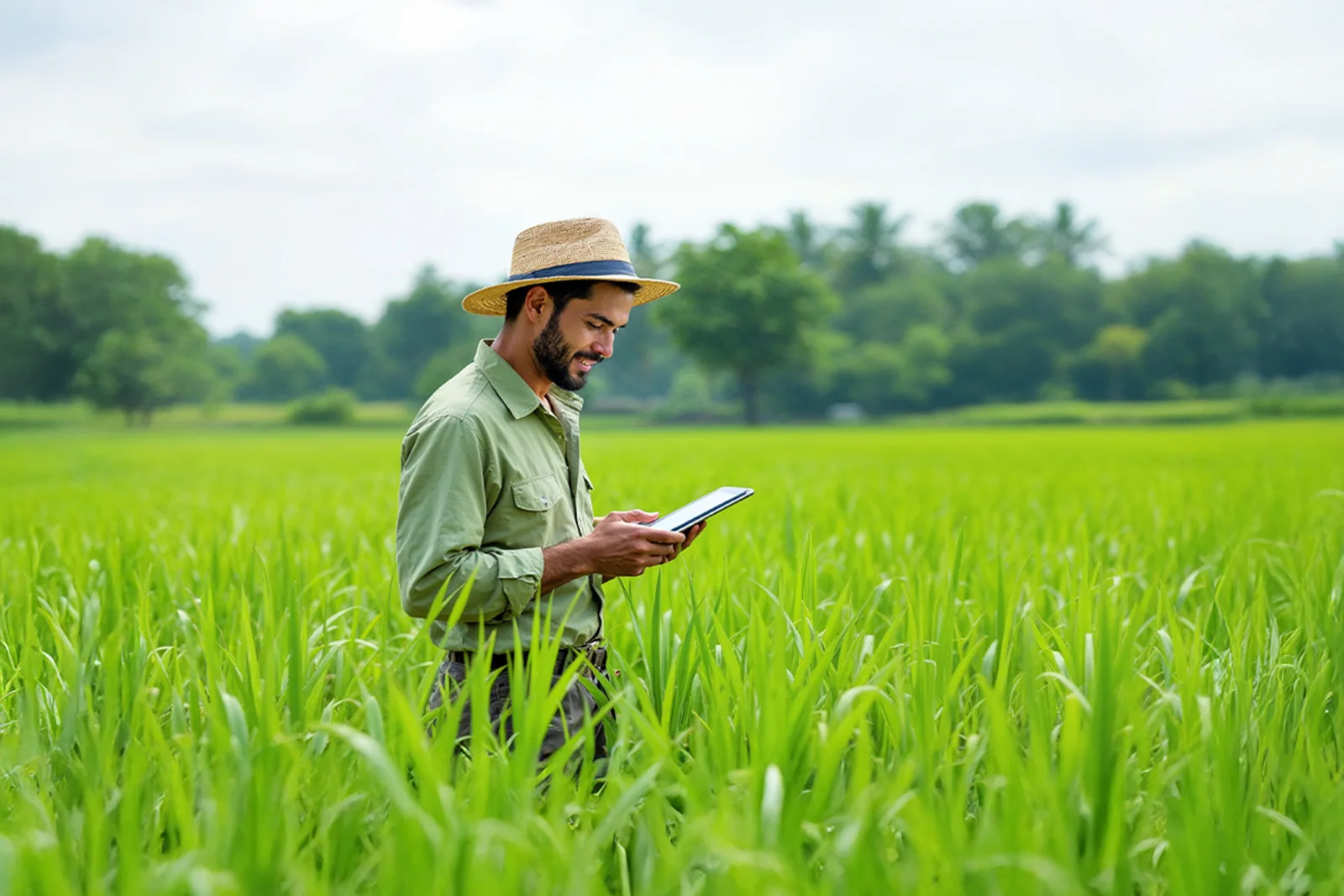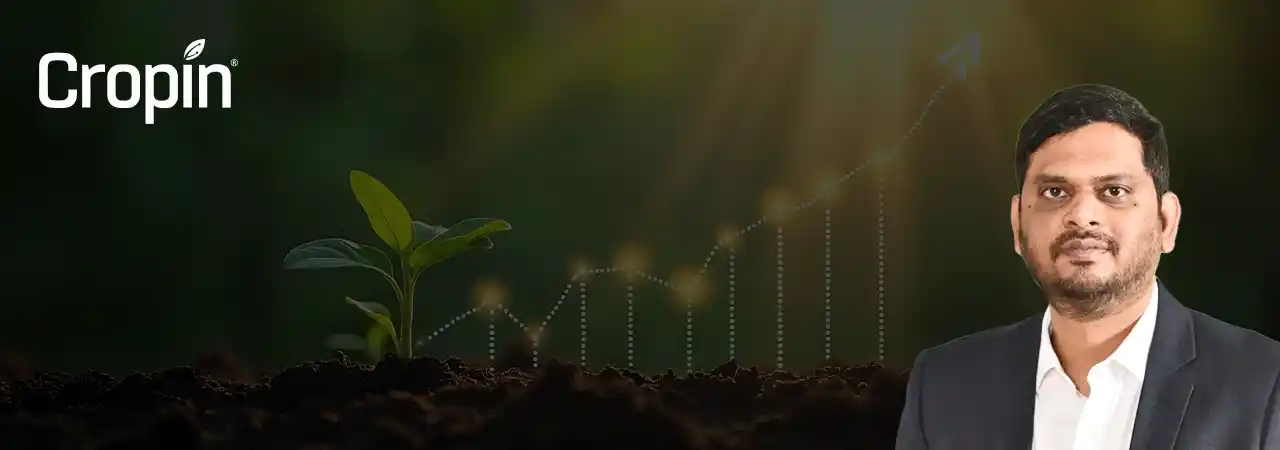Our recent webinar, “Unlocking Yields, Saving Resources: The AI Advantage for Agriculture,” explored how AI can address some of the most pressing challenges faced by global agricultural companies. These companies, often involved in the production, procurement, and processing, while staying committed to sustainability, grapple with a range of concerns at both regional and farm levels.
Challenges faced by agribusinesses
- Demand forecasting: Accurately predicting crop quantity and quality for informed decision-making.
- Remote sensing for sourcing: Identifying suitable regions and farmers for contracting.
- Quality and compliance: Ensuring adherence to the package of practices to meet stringent quality standards and regulatory compliances.
- Sustainable practices: Promoting sustainable agriculture across the supply chain.
- Strategic procurement: Optimizing timing for better pricing.
- Global crop monitoring: Monitor crop health across multiple regions on a centralized single dashboard.
- Yield optimization: Increasing yield per acre for greater profitability rather than expanding contracted acreage.
Addressing agri-challenges with cloud
Addressing these challenges requires a robust integrated cloud platform for agriculture, transcending the current fragmented technological landscape. To streamline operations, this platform should have the following features:
- Ease of adoption: The platform must be user-friendly and require minimal cross-functional training.
- Eliminate data silos: Foster seamless data integration and enable interoperability to eliminate data silos and improve accessibility.
- Ground truth data collection: Simplify and improve ground truth data collection and reporting efficacy.
- Sustainability integration: Support adherence to regenerative principles within complex global supply chains.
- Back-end system integration: Ensure seamless integration with existing back-end systems to facilitate smooth operation and transition.
The financial impact
Data silos, inaccurate forecasts, supply chain inefficiencies, and climate-induced production losses can negatively impact profitability. Additionally, non-compliance with regulations like EUDR can result in revenue losses of up to 4%.
The power of AI for agribusinesses
By leveraging AI, agri-businesses can:
- Bridge data silos
- Optimize operations
- Achieve greater sustainability and profitability
- Enhance visibility
Cropin’s AI solutions in action
A well-coordinated approach with a strategic technology partner can be a game-changer for agricultural businesses. By aligning environmental goals with operational efficiency, companies can achieve sustainable growth. Cropin, with its field-tested solutions deployed across 103 countries, offers a proven track record of success. The platform has empowered organizations, field staff, and growers to manage over 16 million acres of farmland, 7 million farmers, and a staggering diversity of 500 crops and 10,000 varieties. Let’s see how Cropin’s solutions translate into real-world benefits.
Our webinar highlighted how Cropin’s platform equips farmers with plot-level intelligence. Cropin’s solutions leverage various AI models, including yield estimation models, crop health models, and disease early warning systems. These tools empower farmers to optimize farm management, predict yields, and proactively address potential issues.
Cropin’s AI models go beyond farm-level insights. The webinar showcased Cropin’s AI solutions and their ability to unlock regional trends and empower proactive strategies for policymakers. For instance, Cropin’s project in Kenya and Nigeria utilized AI and remote sensing to uncover concerning declines in crop production across vast regions. This data empowers policymakers to make informed decisions for a more secure agricultural future.
Conclusion
Cropin’s Intelligence empowers agri-stakeholders right from optimizing farm operations to guiding policy decisions. Cropin’s technology drives efficiency, sustainability, and profitability. Real-time monitoring, yield predictions, and disease warnings support farm-level decision-making. For policymakers and production houses, Cropin’s AI unlocks regional trends and empowers proactive strategies. Additionally, Cropin ensures European Union Deforestation Regulation (EUDR) compliance with deforestation-free tracking throughout the supply chain. By harnessing Cropin’s AI, agricultural stakeholders can navigate a complex landscape and build a more secure and sustainable future.










